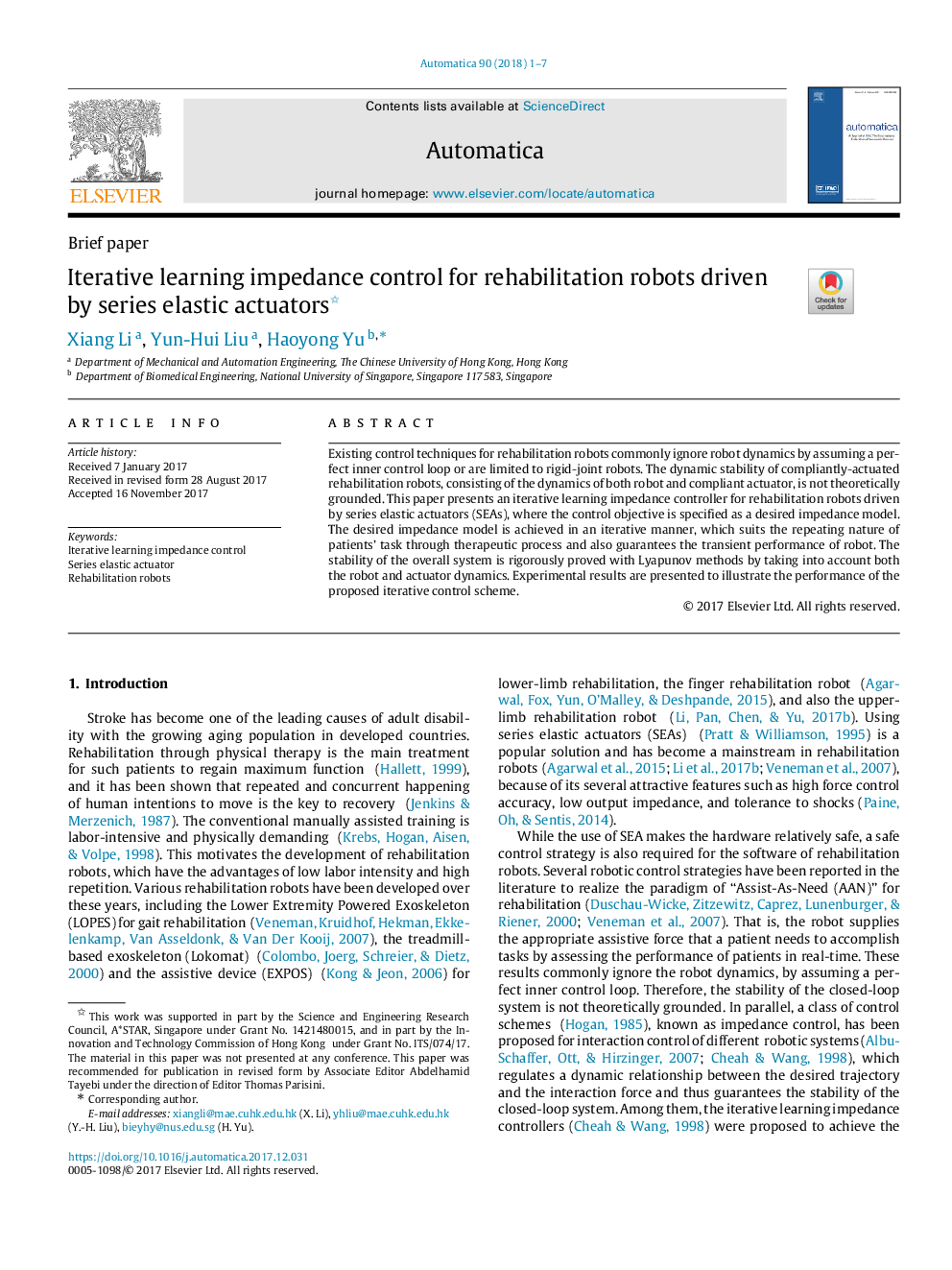| Article ID | Journal | Published Year | Pages | File Type |
|---|---|---|---|---|
| 7108940 | Automatica | 2018 | 7 Pages |
Abstract
Existing control techniques for rehabilitation robots commonly ignore robot dynamics by assuming a perfect inner control loop or are limited to rigid-joint robots. The dynamic stability of compliantly-actuated rehabilitation robots, consisting of the dynamics of both robot and compliant actuator, is not theoretically grounded. This paper presents an iterative learning impedance controller for rehabilitation robots driven by series elastic actuators (SEAs), where the control objective is specified as a desired impedance model. The desired impedance model is achieved in an iterative manner, which suits the repeating nature of patients' task through therapeutic process and also guarantees the transient performance of robot. The stability of the overall system is rigorously proved with Lyapunov methods by taking into account both the robot and actuator dynamics. Experimental results are presented to illustrate the performance of the proposed iterative control scheme.
Related Topics
Physical Sciences and Engineering
Engineering
Control and Systems Engineering
Authors
Xiang Li, Yun-Hui Liu, Haoyong Yu,
